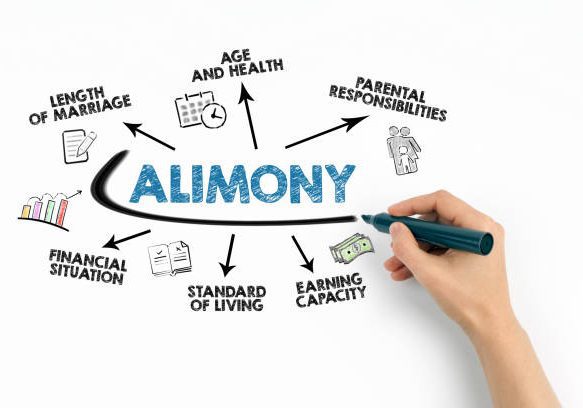Understanding Compensation in Personal Injury Cases

Suffering a personal injury can be a life-altering experience. Whether it’s the result of a car accident, a slip and fall, medical malpractice, or any other incident caused by someone else’s negligence, it can lead to physical pain, emotional distress, and financial hardship. In such challenging times, understanding the concept of compensation in personal injury cases is essential.
This comprehensive guide, brought to you by Pinkston Law Group, P.C., will provide you with a thorough understanding of the various forms of compensation available in personal injury cases. We’ll explore the types of damages you may be entitled to, the factors that influence compensation, and how to navigate the legal process effectively. By the end of this article, you’ll have the knowledge you need to seek fair and just compensation for your injuries.
Understanding Compensation in Personal Injury Cases
Defining Damages
In the context of personal injury cases, “compensation” refers to the monetary awards or payments that an injured party (the plaintiff) may receive as a result of the harm they’ve suffered. These monetary awards are often referred to as “damages.” The purpose of compensation in personal injury cases is to help the injured party recover from their losses and restore their financial and emotional well-being.
Types of Compensation
There are several types of compensation available in personal injury cases, each designed to address specific losses and damages suffered by the injured party. These types of compensation can be broadly categorized into the following:
Economic Damages: These are damages that can be quantified in monetary terms and represent actual financial losses incurred by the plaintiff. Economic damages are often referred to as “special damages.”
Non-Economic Damages: Non-economic damages are more subjective and relate to the pain, suffering, and emotional distress experienced by the plaintiff. They are often referred to as “general damages.”
Punitive Damages: In some cases, punitive damages may be awarded to punish the defendant for particularly reckless or malicious conduct and to deter similar behavior in the future.
Types of Damages in Personal Injury Cases
Economic Damages
Medical Expenses: Economic damages typically include the cost of medical treatment and healthcare services related to the injury. This may encompass hospital bills, surgery costs, prescription medications, physical therapy, and any future medical expenses necessitated by the injury.
Lost Income: If the injury prevents the plaintiff from working, they may be entitled to compensation for lost wages and income. This includes not only the wages they’ve already missed but also future earning capacity if the injury results in a long-term disability or diminished earning potential.
Property Damage: In cases involving vehicle accidents or other incidents causing property damage, economic damages can include the cost of repairing or replacing damaged property, such as a vehicle.
Rehabilitation Costs: For injuries requiring rehabilitation or long-term care, the expenses associated with ongoing therapy, assistive devices, and necessary modifications to the plaintiff’s home may be considered economic damages.
Non-Economic Damages
Pain and Suffering: Non-economic damages encompass the physical and emotional pain and suffering endured by the plaintiff due to the injury. This includes the discomfort, distress, and reduced quality of life resulting from the accident.
Emotional Distress: Emotional distress damages are awarded for psychological trauma or mental anguish caused by the injury. This can include anxiety, depression, post-traumatic stress disorder (PTSD), and other emotional and mental health consequences.
Loss of Consortium: In cases where the injury has a significant impact on the plaintiff’s relationship with their spouse or family, loss of consortium damages may be available. These damages compensate for the loss of companionship, intimacy, and support within the affected relationships.
Punitive Damages
Punitive damages are not intended to compensate the plaintiff for their losses but rather to punish the defendant and deter similar wrongful conduct. These damages are typically awarded in cases where the defendant’s actions were especially reckless, malicious, or grossly negligent. The availability of punitive damages varies by jurisdiction and the specific circumstances of the case.
Factors That Influence Compensation
Severity of Injuries
The severity of the plaintiff’s injuries plays a significant role in determining the amount of compensation they may receive. More severe injuries typically result in higher economic and non-economic damages. Factors that influence the severity of injuries include the type of injury, its long-term impact, and the extent of medical treatment required.
Liability and Negligence
Establishing liability and negligence on the part of the defendant is crucial in securing compensation. If the defendant’s actions or omissions were the primary cause of the injury and they breached a duty of care owed to the plaintiff, liability may be clear. However, in some cases, liability may be disputed or shared among multiple parties, affecting the final compensation amount.
Insurance Coverage
The availability and adequacy of insurance coverage can significantly impact the compensation process. If the at-fault party has insurance with sufficient policy limits to cover the plaintiff’s losses, it can facilitate a smoother claims process. However, if policy limits are insufficient, the plaintiff may need to explore additional avenues for compensation.
Legal Representation
Having experienced legal representation, such as a personal injury attorney, can greatly influence the compensation outcome. Attorneys can assess the strength of the case, negotiate with insurance companies, gather evidence, and advocate for the plaintiff’s rights effectively. They are skilled in maximizing compensation and ensuring that all eligible damages are pursued.
The Legal Process for Seeking Compensation
Filing a Personal Injury Claim
The process of seeking compensation typically begins with the filing of a personal injury claim. This involves notifying the at-fault party or their insurance company of the injury and damages suffered. The claim outlines the details of the incident, the extent of the injuries, and the compensation sought.
Settlement Negotiations
After filing a personal injury claim, negotiations between the parties often take place. During this phase, the plaintiff, their attorney, and the insurance adjuster or opposing party work to reach a settlement agreement. Settlement negotiations aim to resolve the case without the need for a trial, providing a quicker resolution for the plaintiff.
Trial and Verdict
If a settlement cannot be reached, the case may proceed to trial. At trial, both parties present their arguments, evidence, and witnesses before a judge and, in some cases, a jury. The judge or jury then deliberates and issues a verdict. If the defendant is found liable, the court determines the amount of compensation to be awarded.
Appeals and Enforcement
Following a trial, either party may have the option to appeal the court’s decision to a higher court. Successful appeals can result in a new trial or modified judgment. Once a judgment is obtained in favor of the plaintiff, they may need to take legal steps to enforce the judgment and collect the awarded damages.
The Call to Action
Why Choose Pinkston Law Group, P.C.
At Pinkston Law Group, P.C., we understand the physical, emotional, and financial challenges that personal injury victims face. Our team of experienced personal injury attorneys is dedicated to advocating for the rights and interests of our clients. We have a proven track record of securing fair and just compensation for those who have suffered injuries due to the negligence of others.
Contact Us Today
If you’ve suffered a personal injury and are seeking compensation, don’t navigate the legal process alone. Contact Pinkston Law Group, P.C. today to schedule a consultation. We are here to provide guidance, legal expertise, and unwavering support as you pursue the compensation you need for your recovery.
Understanding the various forms of compensation in personal injury cases is the first step toward protecting your rights and seeking the financial resources necessary for your physical and emotional well-being. Let us be your trusted partners in seeking justice. Contact Pinkston Law Group, P.C. today and take the first step toward a brighter and more secure future.





